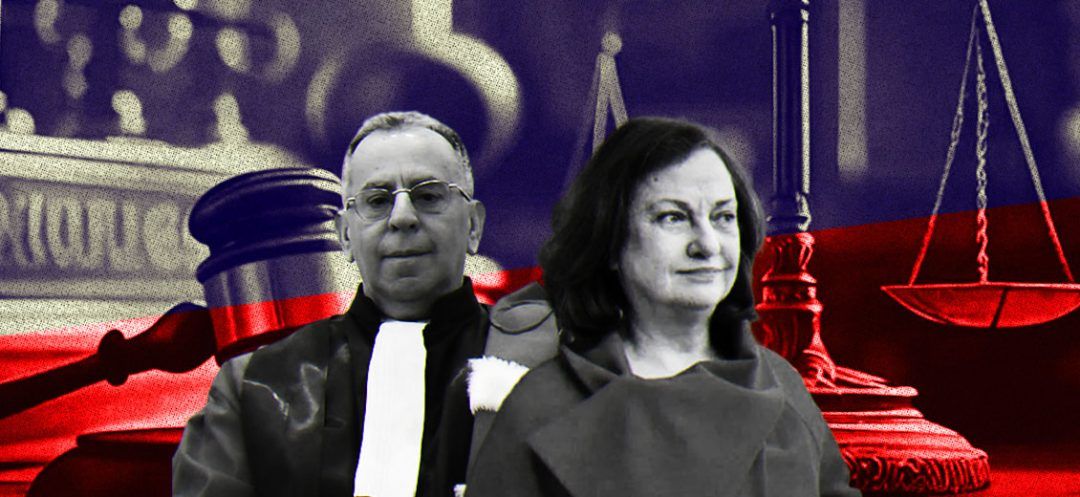
Judge Ghada Aoun's noncompliance with any directive was no surprise, as she considers herself above any guidance or discipline. History has shown her rejection of both. This time, however, there is no going back on Judge Hajjar's decision, no matter how Judge Aoun attempts to evade it, with the support of the Free Patriotic Movement (FPM) and a group of lawyers and journalists.
After the judiciary has decisively ruled on the suspension of Judge Ghada Aoun, the Public Prosecutor of Mount Lebanon appears unwilling to implement the decision issued by Acting Public Prosecutor at the Court of Cassation Judge Jamal Hajjar. Instead, she insists on "insulting her superiors" and bypassing the law. Surprisingly, Aoun maintained her political and partisan posturing despite the judiciary's clear stance. Judge Aoun's noncompliance with any decision was anticipated, as she sees herself above any guidance or discipline, a fact that her history corroborates. However, this time Judge Hajjar's decision is final, notwithstanding her efforts to evade the ruling, backed by the Free Patriotic Movement and a group of lawyers and media figures.
Judicial sources confirm to sister company Houna Loubnan that Judge Ghada Aoun acts as if she is still "in charge," creating her own operational framework, even replacing judges, if needed, using the same rhetoric: "I was not informed of the appointment (of Hajjar)," or "No one has the right to dictate my decisions." She refused to hand over her files to Judge Hajjar, as required, and has not responded to any circular, persisting in her behavior outside legal norms, and threatening to file appeals whenever the judiciary attempts to regulate its work without political whims.
These sources note that Judge Hajjar has the right to act, given Aoun's violations and her blatant disregard for the constitution, as her acts were dictated by specific political demands. They say, "Judge Hajjar has ruled correctly, and Aoun has violated the law, so this time she must stop her pointless rebellion and comply with her superior's decision."
In an interview with Houna Loubnan, judicial affairs journalist Youssef Diab says Judge Jamal Hajjar's decision is effective and being implemented by the judicial police. Judge Aoun is entitled to file a review, which she previously did against a similar decision made by Judge Ghassan Oueidat, but the State Council did not rule on Oueidat’s decision or suspend it.
The State Council is an administrative branch of the judiciary that can annul administrative decisions but not judicial ones. If the council's President, Judge Fadi Elias, decides to transfer a file from one judge to another within the council itself, the judge from whom the file is taken cannot file a complaint with the public prosecutor at the court of cassation. This is a decision engaging a superior and a subordinate, who must comply. Hence, Ghada Aoun must comply with Judge Hajjar's now-effective decision.
Concerning her possible actions, she can file a complaint with the prosecutor of the court of appeal in Baabda, provide a substantive opinion if a case is referred to her, and appeal a decision if a preliminary ruling displeases her. However, she can no longer issue travel bans or seize properties or bank assets, as the judicial police and ministries no longer respond to her requests.
Diab believes that Aoun's concern lies in her lost power and influence, previously exercised through such actions and directives, subordinating people to her will, often involving political cases. Now, she can no longer do so. He reveals that Judge Hajjar stands firm on his decision, despite mediation attempts to resolve matters or retract his decision in exchange for Aoun's compliance with his directives.
Read more


Comments